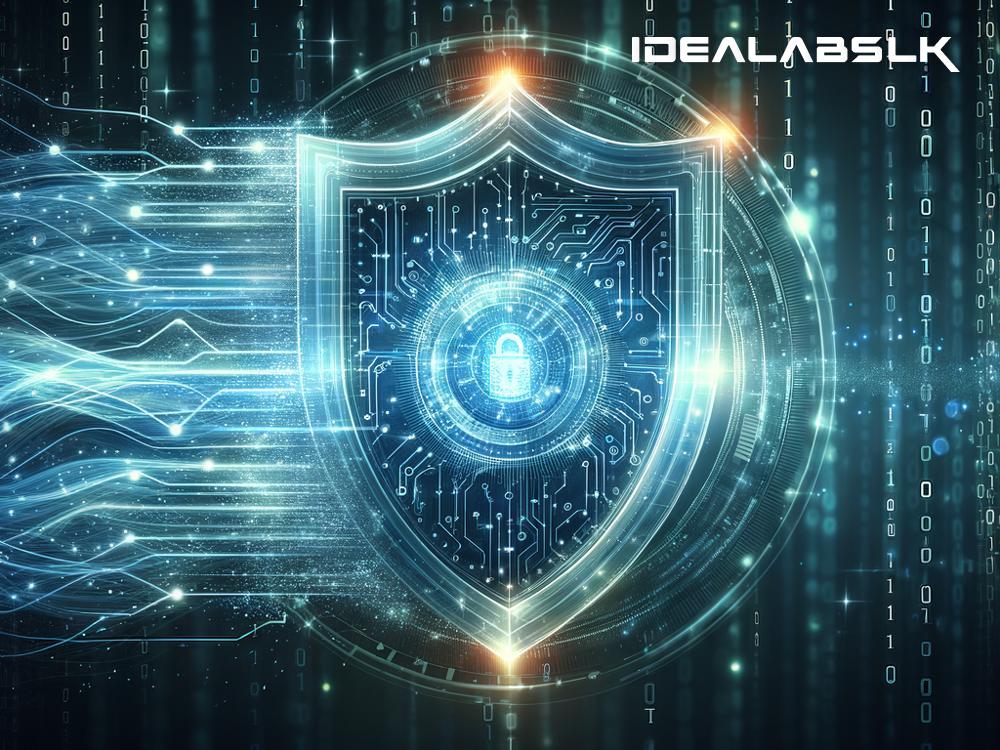The Future of AI in Cybersecurity: A Simplified Outlook
In the ever-evolving landscape of the digital world, cybersecurity stands as a towering fort, safeguarding the treasure trove of data and privacy we so cherish. But just as our defenses grow stronger, the threats we face evolve with even greater cunning and sophistication. Enter Artificial Intelligence (AI), our knight in shining armor, promising to revolutionize how we protect our digital realms. Let's explore in simple terms what the future might hold for AI in cybersecurity.
AI: The Guardian of the Digital Universe
Picture AI as a vigilant guardian, equipped with the keenest of senses and the sharpest of minds, tirelessly watching over the vast digital universe. Its job? To spot the bad actors - hackers, malware, and other cyber nuisances - even before they strike. But how exactly does AI plan to achieve this feat? Let's dive in.
Predicting and Preventing Cyber Threats
One of AI's most talked-about superpowers is its ability to predict cyber attacks before they occur. Imagine having a weather forecast but for cyber threats, allowing you to take cover before the storm hits. AI can analyze past and present data to identify patterns and predict potential attacks, making it a potent tool for preemptive defense.
Speed and Automation: AI's Dynamic Duo
In the realm of cybersecurity, time is of the essence. The faster a threat is detected, the lesser the damage. AI excels in this aspect, offering speed and automation that human defenders can hardly match. It can sift through colossal amounts of data at lightning speed, detecting anomalies and responding to threats in real-time. This means that even while you're sipping your morning coffee, AI could be warding off a cyber attack, all on its own.
The Evolution of Phishing Scams and AI's Counterattack
Phishing scams, where attackers deceive individuals into revealing personal information, are evolving. However, AI is on the case, becoming increasingly skilled at identifying and blocking these fraudulent attempts. By analyzing the patterns and markers of countless emails, AI can sniff out a scam from miles away, often before it even reaches your inbox.
Smartening Up Security Systems
Traditional security systems, while effective to an extent, can sometimes be tricked or bypassed by sophisticated hackers. AI aims to smarten up these systems by continuously learning and adapting. It's like having a security system that evolves, becoming more intelligent with each attack it faces, ensuring that it's always one step ahead of the perpetrators.
The Potential Pitfalls: AI in the Wrong Hands
It's not all sunshine and rainbows, though. As powerful as AI is in bolstering cybersecurity, it can, unfortunately, also be used for nefarious purposes. Cybercriminals are experimenting with AI to launch more sophisticated attacks, creating a sort of arms race between hackers and defenders. It's a constant battle of wits, with each party vying to outsmart the other using the very same technology.
The Human Element: The Irreplaceable Core
Despite the marvels of AI, the human element remains irreplaceable in cybersecurity. AI can process and analyze data, detect patterns, and automate responses, but human judgment, intuition, and creativity are paramount in overseeing these systems and making nuanced decisions. The future of cybersecurity lies not in replacing the human element but in harnessing AI to augment and empower it.
Ethical and Privacy Considerations
As we entrust AI with our digital security, ethical and privacy concerns come to the fore. There's a fine line between surveillance for protection and invasion of privacy, and AI's role in cybersecurity must be navigated with utmost care to respect individual rights while ensuring collective safety.
Conclusion: A Future with AI as a Cyber Guardian
The future of AI in cybersecurity paints a picture of immense promise, with the potential to transform how we protect our digital lives. From predicting attacks before they happen to automating real-time defenses, AI could significantly reduce the risk and impact of cyber threats. However, this future also demands careful consideration of the ethical implications and a commitment to maintaining the human oversight that ensures AI remains a force for good. As we stand on the brink of this exciting frontier, the collaboration between AI and human intelligence in fortifying our digital defenses offers a hopeful vision for a more secure cyber world.

